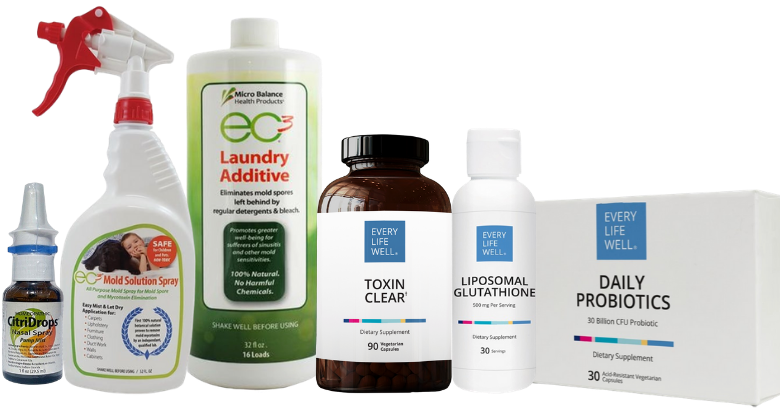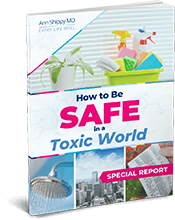As winter and the pandemic continues, it’s important to address the rising rates of depression in our society.
You likely know a college student or younger kids who are unable to be around their peers or in classrooms during important moments in their developmental and social growth.
Or, think of an elderly relative or a friend with an underlying condition who is at higher risk of COVID-19 infection and complications. They may be much more isolated, and afraid, than others in your circle.
Many have lost jobs, many (mostly women) have left the workforce to care for children and many have no choice but to continue to go to work. The pressure is high in many lives right now and it’s affecting our mental health.
This article is for you and for your loved ones. Keep reading to learn more about:
- The definition of depression
- Signs and symptoms of depression
- The relationship between depression and COVID-19
- Understanding inflammation and the root causes of depression
- Dr. Shippy’s diet and lifestyle strategies for preventing and addressing symptoms of depression
Let’s jump in to this important topic, starting with the basics and moving on to practical strategies!
What Is Depression?
Depression is a state of low mood, sadness and loss of interest in daily life or things that used to bring you joy. It’s normal for everyone to feel down from time to time, but when it’s persistent, it may be a sign that something else is going on.
Clinical depression exists on a continuum from mild or moderate symptoms to major depressive disorder.
Since we are all different, we may have different risks of depression.
Some contributing factors include: genetics, epigenetics, biochemistry, family history, relationship to stress, environmental triggers, life circumstances and more.
Signs And Symptoms Of Depression
Symptoms may be quite mild or incredibly sever and include:
- Feeling down or numb
- Having difficulty finding joy
- Disrupted sleep patterns
- Changes in appetite
- Weight loss or gain
- Feelings of guilt or worthlessness
- Decrease in concentration, focus and decision making ability
- Negative thoughts toward yourself
- Fatigue
- Thoughts of death or suicide
Although depression and grief sometimes go hand-in-hand, it is separate from the grieving process.
Depression And COVID
Given everything that’s gone on in 2020 with COVID-19 and the pandemic’s impact on our lives, it only makes sense that symptoms of depression are on the rise.
In a recent article in the Journal of the American Medical Association, researchers looked at Patient Health Questionnaire-9 surveys from 1441 people during the COVID-19 pandemic and compared scores with 5065 respondents from prior to the pandemic.
The study found that depressive symptoms rose three fold during the COVID-19 pandemic, with a greater effect on those with lower social and economic resources and those with greater stress, including job loss.
The study talks about how COVID-19 itself is considered a traumatic event because it may cause physical, emotional and psychological harm. Measures put in place to limit the spread of the disease, disrupted routines and increased stress for many people.
Similar rises in depression are seen after natural disasters or terrorist events.
A CDC report, from around the same mid-pandemic time, shows around 40 percent of US adults struggling with a mental health or substance abuse concern. Of these, 30 percent showed signs and symptoms of anxiety and depression. Young adults, essential workers and caregivers were among the hardest hit.
We are even seeing rises in depression among children and young adults. Disruptions in school and social lives, online learning and missing out on important milestones may all be contributors.
It is also well documented that an increase in exposure to digital media as well as the blue light from consuming the digital media is linked to changes in mood, including depression.
Because of changes in healthcare procedures during the pandemic, depression may be going underdiagnosed and those suffering may lack certain treatment options. And as we head into winter, the lack of sunlight, lower vitamin D levels and lower immune resilience may exacerbate the problem.
Depression And Inflammation – A Root Cause Approach
As with so many conditions, Functional Medicine is uniquely poised with the tools to address depression. Instead of simply viewing depression as a brain problem or neurotransmitter imbalance, we seek to uncover the root cause of the symptoms.
Sometimes depression is actually hypothyroidism or another condition, so first it’s important to do the detective work to tease out the possibilities.
In recent years, there has been a growing body of work looking at inflammation as a driver of depression and now we know that it works both ways: inflammation drives depression and depression fans the flames of inflammation.
Inflammation is so common and always involved in chronic disease. While inflammation is an important immune process used for wound healing, for example, low levels of chronic inflammation often lead to bigger health issues and scares, including diabetes, heart disease, cancer and auto-immune disease.
What causes inflammation? A processed foods, high sugar diet, gut infections or an imbalance of the microbiome, toxin exposure, nutrient deficiencies, smoking, excess weight and stress. All of these impact the HPA-axis and the pathways that produce inflammatory signals.
The depression-inflammation connection is leading to new therapies. Whereas anti-depression medications used to be the main tool in conventional medicine, more and more anti-inflammatory agents are seeing promise and these include natural options such as curcumin and omega-3 fats.
Diet And Lifestyle Strategies For Depression
There is a lot that you can do in your daily life to address symptoms of depression as well as prevent it. Many of these strategies are free or low cost ways to address depression triggers, inflammation and other root causes.
Dr. Shippy’s Depression Action Steps:
1. Adopt an anti-inflammatory Paleo diet. Real, traditional food is really your best medicine and an incredible way to provide the nutrients the body needs for a healthy brain, balanced microbiome and increased resilience to stress. Click here for what to eat.
2. Increase exercise and movement. Exercise is powerful depression prevention and also reduces symptoms for those in a depressed state. For an added boost, try to get your movement outdoors, in nature for the ecopsychology benefits. This is true even in cold weather, so bundle up and get outside. You’ll feel better afterwards, guaranteed.
3. Connect with others. Social isolation leads to depression, which is one reason that many have felt a decline in their mental health during this COVID-19 pandemic. Use online tools or the good old-fashioned telephone to stay in contact with friends and family. Luckily, there are many services that have gone online including telemedicine visits with your doctor and virtual therapy sessions. Online support groups and group wellness classes are more common as well.
4. Pay attention to your thoughts. Negative thoughts often creep in without our awareness. Pay attention to how you are speaking to yourself and question if your negative thoughts are actually true. The more you pay attention, the more you can catch your negative thoughts and let them go or work to replace them with more loving, compassionate self-talk.
5. Get present. Often we think about the past or feel anxious about the future, but miss what is really happening in the moment. This might mean meditation, breathing exercises, keeping a gratitude journal and other self-care practices that help us to feel grounded, supported and connected with our true selves.
6. Unplug. While the internet can be a helpful tool for connecting, social media and mindless scrolling leaves us feeling empty, depleted and playing the comparison game. Notice how you feel with certain online activities and set healthy boundaries. For example, you may choose to turn off screens by 8pm or go without the internet every Sunday. If this resonates, be sure to take a moment to schedule your digital detox. In addition, exposure to EMFs and blue light may have its own risks, so unplugging is good for both body and mind!
7. Consider supportive supplements. In addition to living a healthy and non-toxic lifestyle, certain nutritional supplements may help to reduce depression and address root causes. Anti-inflammatory supplements including Liposomal Curcumin, NRF2 Prime and omega 3 fats are particularly effective at reducing inflammation along with removing the inflammatory triggers.
There are many other supplements particularly suited to support brain health, brain function and neurotransmitter production. These include: B vitamins, Magnesium Glycinate and Mitochondria Support.
Dr. Shippy put together this Better Brain Bundle for comprehensive support through the winter, the rest of the COVID-19 pandemic and beyond.
While we all go through low moods and hard times, when it becomes persistent and we are disconnected from our joy, depression may be at play.
Luckily, by building some new habits and using a Functional Medicine approach to identify sources of inflammation and other root causes, vast improvements in symptoms are possible.
With such dramatic increases in depression over the last 9 months, you or someone you know would likely benefit from this information and implementing some of these simple, yet helpful strategies.
Our hearts go out to you and yours during these challenging times. We wish you the simple pleasures of life, connection and nourishment!
References
- Ettman, C. K., Abdalla, S. M., Cohen, G. H., Sampson, L., Vivier, P. M., & Galea, S. (2020). Prevalence of Depression Symptoms in US Adults Before and During the COVID-19 Pandemic. JAMA network open, 3(9), e2019686.
- Centers for Disease Control and Prevention. (2020). Mental Health, Substance Abuse, and Suicidal Ideation During the COVID-19 Pandemic – United States, June 24-30, 2020. Morbidity and Mortality Weekly Report, 69(32), 1049-1057.
- Hoge, E., Bickham, D., & Cantor, J. (2017). Digital Media, Anxiety, and Depression in Children. Pediatrics, 140(Suppl 2), S76–S80.
- Kohler O, Krogh J, Mors O, Benros ME. Inflammation in Depression and the Potential for Anti-Inflammatory Treatment. Curr Neuropharmacol. 2016;14(7):732-42.
- Leonard B. E. (2018). Inflammation and depression: a causal or coincidental link to the pathophysiology?. Acta neuropsychiatrica, 30(1), 1–16.
- Fusar-Poli, L., Vozza, L., Gabbiadini, A., Vanella, A., Concas, I., Tinacci, S., Petralia, A., Signorelli, M. S., & Aguglia, E. (2020). Curcumin for depression: a meta-analysis. Critical reviews in food science and nutrition, 60(15), 2643–2653.
- Deacon, G., Kettle, C., Hayes, D., Dennis, C., & Tucci, J. (2017). Omega 3 polyunsaturated fatty acids and the treatment of depression. Critical reviews in food science and nutrition, 57(1), 212–223.
- Schuch, F. B., & Stubbs, B. (2019). The Role of Exercise in Preventing and Treating Depression. Current sports medicine reports, 18(8), 299–304.













